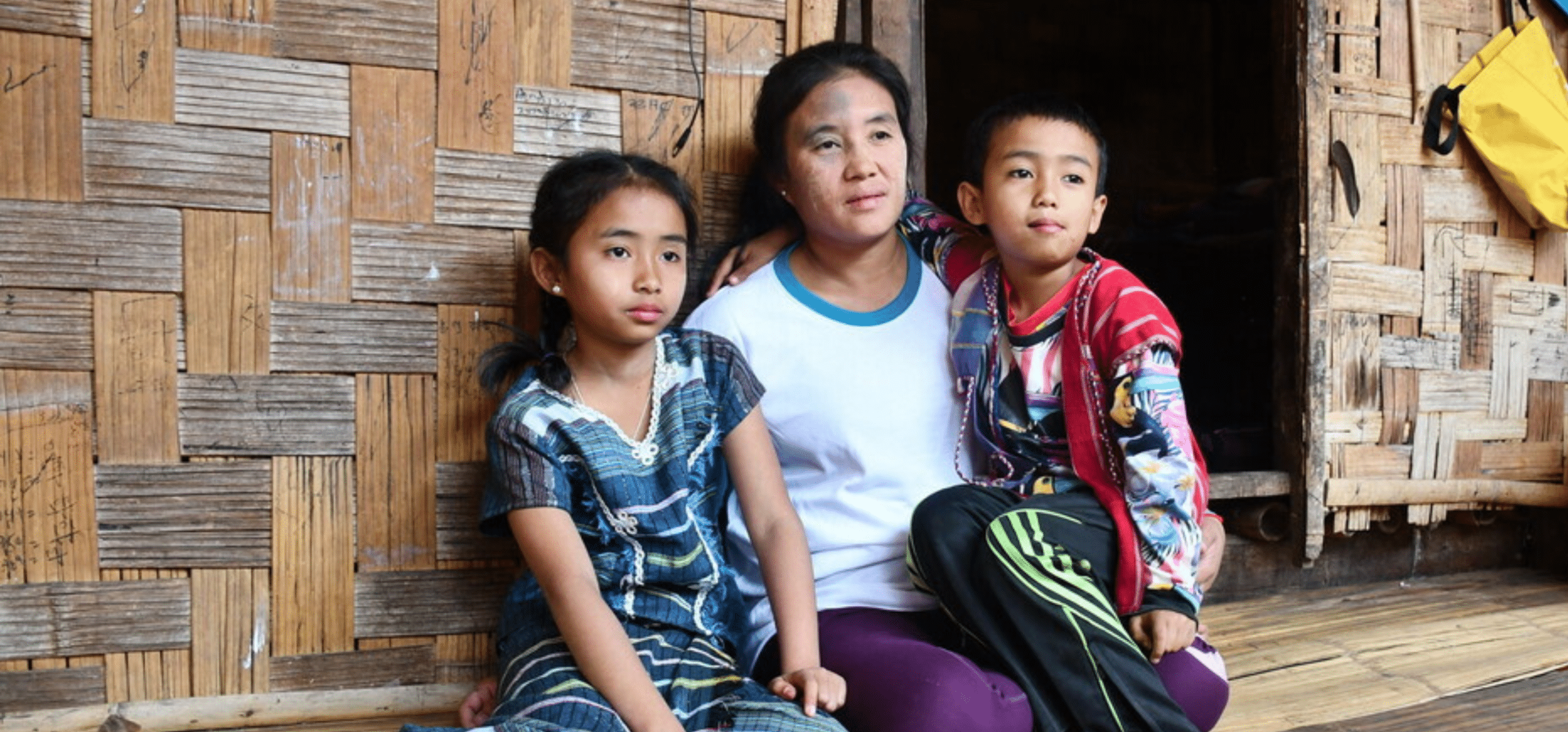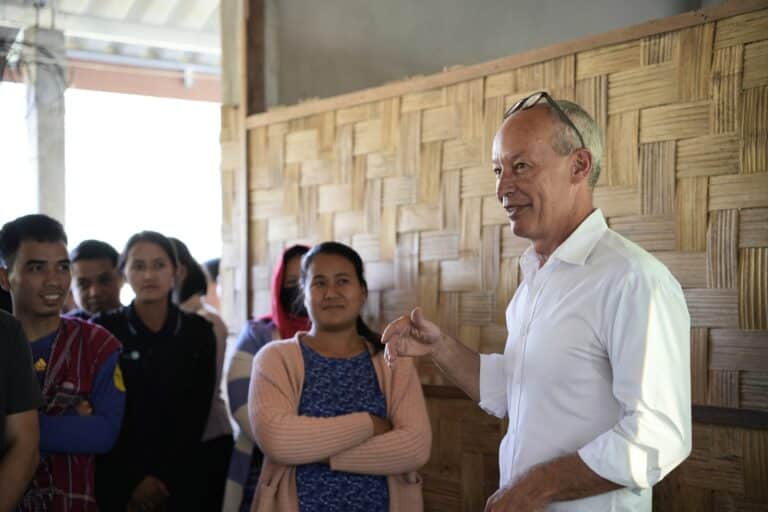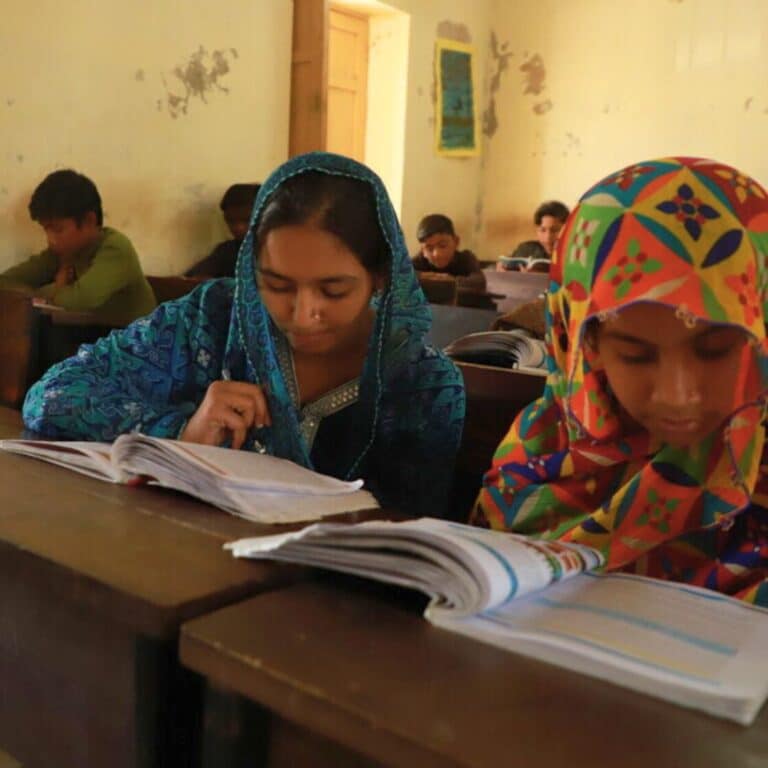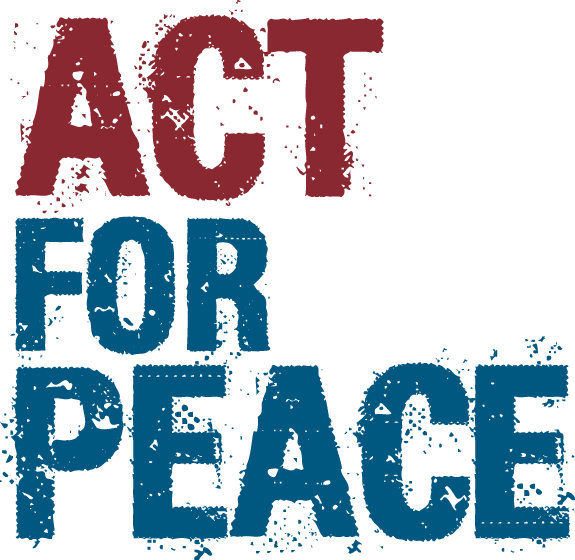The international humanitarian system is being gutted as we speak. 50% of global funding is being cut. The impact is almost incomprehensible. Lifesaving programs shut down overnight – food aid programs stopped, medical clinics shutdown and patients put out on the street. It’s now estimated that millions of people are likely to die as a result.
“US President Donald Trump and Elon Musk, via social media, have deliberately undermined the reputation of the whole aid sector to justify cutting US foreign assistance and getting rid of USAID. Now, the UK and EU countries, fearing NATO is dead and they’ll have to support Ukraine alone, are raiding aid budgets to gear up for war,” says James.
It seems empathy is out and self interest is in
People are dying. Decades of hard-won development gains are at risk.
At Act for Peace, we know there are still people who don’t want to trade human lives for bottom lines.
James tackles the questions about the future in a time of unimaginable uncertainty in the sector. He suggests we have to ask the questions and need to face the answers if we want to understand the current state of the world. And if we want to have the voices of the 122 million* people who are displaced around the world heard, we need to advocate loudly for a better future.

transforming the system
“A lot of conservative governments don’t believe in foreign aid. They believe in the market economy, and they have a neoliberal economic agenda.
“They’re getting donations from big business and support electorally from the top end of town.
“So it seems they’re not really that interested in foreign aid unless it has some kind of strategic, geopolitical agenda attached to it.”
~ James Thomson, Act for Peace Senior Policy & Protection Advisor
Aid is good foreign policy
But according to James, aid is in our foreign interest, because historically, when we abandon aid, global conflicts surge and regional stability crashes.
“If you don’t have some of these aid programs, they come back to bite you,” he explains. “What happens when Ebola breaks out again and there’s no early warning system, no prevention, and no quarantine? Do we think it’s not going to skip borders, or any number of other diseases when people are being vaccinated? Do we think Australian tourism will survive when Cholera and TB are running rampant in the region? Will you be travelling for business or taking your kids overseas?”
“It won’t just be a catastrophe in Africa or for Asia. It will affect trade, travel, tourism, markets and regional stability itself. Then you end up with conflicts, and authoritarian regimes taking over.
“Those kinds of crises have massive implications that will impact every country because we’re all interconnected. You can’t escape the reality of disease going across borders.”
As James shares, there are plenty of examples of catastrophic global impact when aid is scaled back.
the global impact of withdrawing aid
“If you suddenly cut food aid in a refugee camp with a million people, people will die. They will have to move to survive, getting on boats to Europe and Australia. I’d do the same for my kids.
“The worst part, however, is they’ll be exploited on route. We’ll literally be creating a growth opportunity for smugglers, traffickers, exploitative employers and armed groups looking for recruits. The we’ll spend even more money trying to shut these groups down.”
~ James Thomson, Act for Peace Senior Policy & Protection Advisor
“Aid has always been in our national interest; we just don’t realise it, and that’s why it been an easy target for budget cuts because the public don’t realise how important it is for their security.
“That’s why Trump can throw dirt on USAID and then disband it without a public outcry. Americans never realised how it helped them, and the impact it will have on them in a few years now that it’s gone.”
As former United States Secretary of Defence, James Mattis, said back in 2013, funding the State Department prevents war.
“If you don’t fund the State Department fully, then I need to buy more ammunition ultimately,” warned Mattis. But more than a decade later, it’s clear Trump has forgotten that warning.
Australia’s aid budget
Recent research, conducted by RedBridge (July 2024), shows Australians consistently overestimate the percentage of the federal budget spent on aid.
So how much is it? In 2024, Australia only spent 0.68% of its total budget on aid.
This is 10 times less than the amount spent on defence (6.53%). The remaining 92.6% made up the rest of our domestic budget.
In the government’s recent budget announcement, Australia committed to increasing aid to $5.1 billion – up $135.8 million from last year. But that has decreased to just 0.65% of our overall budget.
So less than 1% of our budget is spent on aid, at a time when 700 million people still live in extreme poverty, one in five children live in conflict zones and the number of refugees and displaced people escaping conflict have doubled in just seven years.
The balance sheet? It doesn’t add up.
And we don’t want to trade human lives for bottom lines.
We’ve watched in disbelief as other nations have slashed their aid budgets, with the US suspending their aid programs overnight.
According to James, this isn’t just bad policy, it’s morally reprehensible cutting off all aid overnight, and the Australian public needs to make it clear to our leaders that we don’t want to follow suit.

“We need to call out this callous disregard for the most vulnerable people on earth.
“We need to stand up and say: ‘this is morally reprehensible’.”
~ James Thomson, Act for Peace Senior Policy & Protection Advisor
Step up, don’t stand back
Join us in advocating for Australia’s government to increase aid to 1% of the federal budget.
While other donors pull back, we need our government to step up. This is our money, and we want a safer world for all, not just us. We are a generous, compassionate and lucky country and we want to do more, not less.
We recognise the value of humanitarian aid in increasing security and stability, opening new markets and trade for Australia, and enhancing our global reputation and diplomacy.
We are committed to taking an active role in preventing and resolving conflicts, finding solutions for displaced people, and tackling the climate crisis, if not for us, for our children.
According to James, every Australian has an important advocacy role ahead of the election.
“Australians often think, there’s not much I can do, these are big global problems and it’s just too big for me to solve. But we all influence people every day.
“We have conversations at the bus stop, at work and with family. We are influential actors in changing public opinion.
“What you do on social media has a big impact. What you do when you challenge a false idea, or misinformation has a big impact because it has a knock-on effect in your circle of influence.”
Advocacy can bring change
When we begin to advocate for change in our own spheres of influence, the ripple effect is huge. Instead of joining the growing tide of self-focus and indifference, we want to see a return to empathy and benevolence.
According to James that is possible.
“We need to come together at a global level. The public in each country needs to band together and say, as citizens, we expect our government to address these problems.

together we can put the human back into humanitarian aid
“We need to come back to a sense of human solidarity and collective action.
We need to say, that these problems affect us all, and our government represents us.
We need to demand change.”
~ James Thomson, Act for Peace Senior Policy & Protection Advisor
How you can help
Advocate
Join us in advocating for our government to do more for people who need our help the most. Write to you MP voicing your support for Australian Aid (by clicking Advocate button below).
Spread the word to your friends and community and get them to do the same.
Give
Support our local partners to continue providing life saving humanitarian programs by making a donation.
Your gifts will provide them with vital support to continue providing humanitarian programs.
Pray
Please pray for a return of empathy for humankind. Pray for the communities affected by aid cuts and for the humanitarian workers who have lost their jobs.
Pray for the future of humanitarian programs and for sustainable funding.
*UNHCR mid year report 2024
